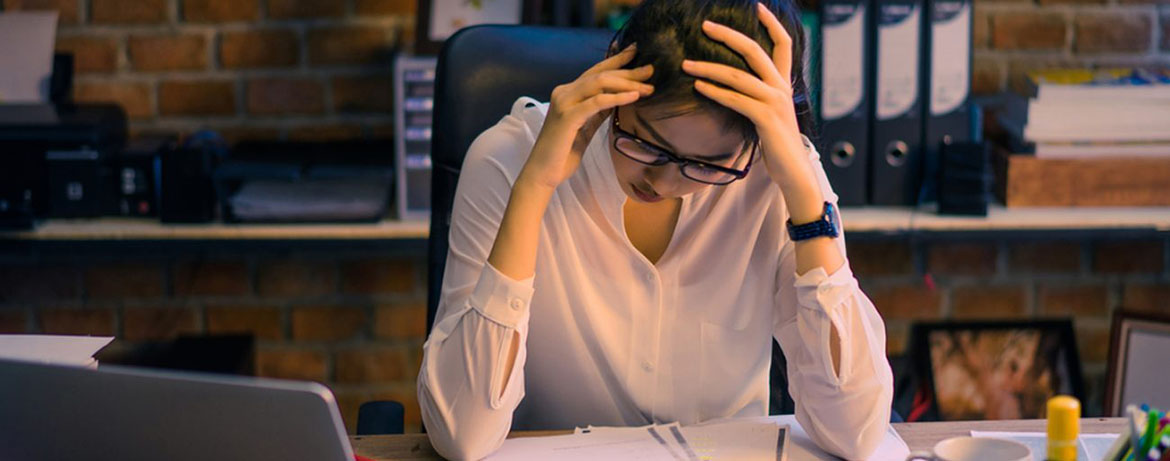Does Multitasking Make You More Efficient? - Business Insight

Does Multitasking Make You More Efficient?
Have you ever checked your inbox while attending a business meeting, or replied to a few emails while in the midst of doing up a report? Multitasking is certainly nothing new in this day and age, and we’re all guilty of it at some point of our lives. With the constant pressure to wear multiple hats and deliver results, reports and completed tasks, many definitely think that multitasking helps to achieve more with less.
However, is multitasking really the most effective way of completing tasks? We’re here to play devil’s advocate – read on to find how multitasking can waste time, compromise on quality and diminish productivity.
The Bad Side of Multitasking
Waste of time
One common belief about multitasking is that it helps save time and effort as compared to doing different tasks separately. Truth is: when it comes down to it, multitasking simply comprises high-speed task switching. It takes more time to get tasks completed if you switch between them than if you do them one at a time. As stated by Forbes, the brain cannot effectively or efficiently switch between tasks. It actually takes your brain roughly four times longer to recognise new things so you’re not saving time at all. In fact, multitasking costs time.
Compromises quality of output
While your brain takes time to switch between tasks, your focus similarly, is constantly being interrupted as you jump from one task to another. This ultimately affects the quality of output — limited focus results in us tending to simply skim across the surface of the task at hand. Educator and psychologist Dr. JoAnn Deak noted that multitasking not only doubles the amount of time needed to complete a task but also doubles the number of mistakes.
With attention spread thinly across multiple tasks in addition to constant distractions, it is thus not surprising that there is a higher propensity to make mistakes while multitasking as compared to doing each task one at a time.
Diminishes productivity and motivation
Furthermore, multitasking also causes a loss of focus on daily goals as it eventually diminishes one’s productivity and efficiency. This causes the build-up of stress instead, as claimed by The Guardian. Studies have shown that multitasking causes a spike in the production of cortisol, a stress hormone, as the brain becoming mentally fatigued from the constant task switching.
According to Psychology Today, constant task-switching can add up to a loss of 40% of your productivity in a day. It also impedes the brain’s ability to absorb information. When you are trying to complete two dissimilar tasks, with each requiring a certain amount of attention, the brain is unable to encode them fully into short-term memory, which means the information does not make it to long-term memory for recall later.
What you should do instead
Prioritise and set clear goals
As difficult as it sounds, making the extra effort to prioritise and work on your most important tasks first actually helps a lot! Clearing the most important tasks at the start of your day will result in an immense sense of relief and accomplishment that will motivate you further; this also helps you to resist the allure of multitasking.
Slow down to speed up
Set aside blocks of concentrated time to finish a certain specific task and shut yourself off from all other distractions while doing so. This means no browsing other tabs on your laptop or checking your phone. By systematically clearing and checking off your to-do list as you go along, you’ll feel in control of what you can accomplish in a day. You’ll also find yourself performing better instead of having to cope with the anxiety and stress caused by multitasking and worrying about not being able to complete what needs to be done.
Take regular screen breaks
Regular screen breaks can help your brain to calm down and recharge, giving it the opportunity to breathe and help with concentration skills later on. Research has shown that the prefrontal cortex of your brain can only work on one thing at a time and multitasking inhibits the brain’s ability to problem-solve. To fix this, have regular breaks and set time for blank spaces in a day. The less you tire out your brain, the more it will help you to get your work done.
Take steps to achieve better productivity and efficiency in the workplace, such as utilising Canon’s business solutions to make work less cluttered and more efficient. For instance, Canon’s creative and design solutions include invoicing processes that can help save lots of time through a digitised archiving system that eradicates the need for manual document retrieval. Our applications effectively remove labour intensive administrative processes that are time-consuming and prone to human error, allowing you to free up your time to do more and focus on the things that matter.
Trade in chaos and anxiety for mindfulness and efficiency. A swiss army knife is prized for its multi-functionality but you can only ever use one tool at a time, not all at once.
For more business-related solutions, follow Canon Singapore on LinkedIn!
